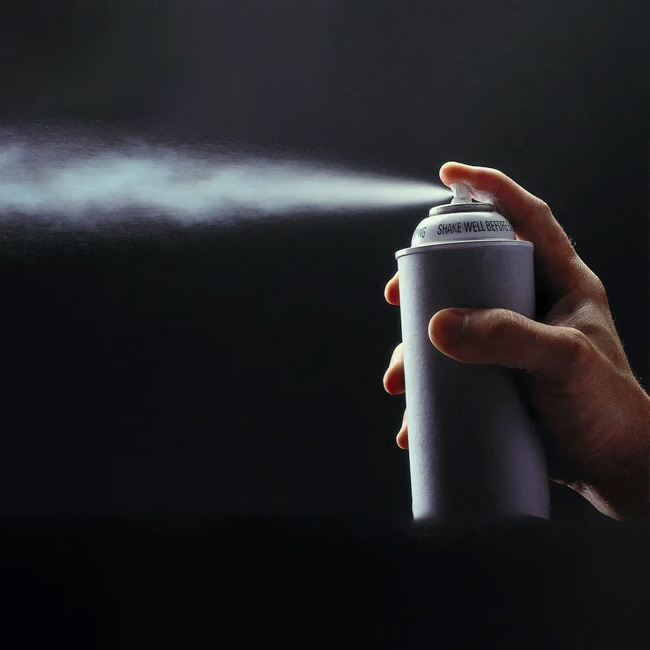Aerosol

Introduction to Aerosols
Aerosols are a type of gas system containing liquid or solid particles, typically in the form of a spray. They work by converting the contents into fine droplets or particles through a spray device. Aerosols are commonly used in everyday products like insecticides, cleaners, perfumes, hair sprays, and more. Aerosols use gas as a propellant to push the liquid or solution out of the canister.
The Role of Dimethyl Ether in Aerosols
Dimethyl Ether (DME) serves as an effective propellant in aerosols, offering several important functions:
Propellant Action: DME can liquefy under pressure and act as a gas to propel the liquid contents of an aerosol through the spray nozzle.
Low Toxicity and Environmental Friendliness: DME is a non-toxic and environmentally friendly propellant that does not release harmful gases or contribute to environmental pollution.
Rapid Volatility: DME evaporates quickly after spraying, leaving the product dry or cleaned without residue, making it ideal for various cleaning and personal care products.
Advantages of Dimethyl Ether as a Propellant in Aerosols
Environmental Friendliness:
DME does not contain chlorine or fluorine, avoiding the ozone-depleting effects of traditional aerosol propellants like CFCs and HCFCs, and meets green and eco-friendly standards.
It is non-toxic and harmless, ensuring no negative impact on human health.
Efficiency and Rapid Evaporation:
DME has a low boiling point, allowing it to evaporate quickly at room temperature, ensuring fast drying and cleaning without leaving residues.
It performs well in low-temperature environments, effectively releasing the contents of aerosol products.
Safety:
DME has a high flash point and is heavier than air, making it safer under normal usage conditions.
It does not produce harmful gases, making it suitable for a wide range of consumer and pharmaceutical products.
Cost-Effectiveness:
DME is relatively inexpensive to produce and can be derived from various raw materials, offering an economic advantage.
Using DME as a propellant can help reduce the overall cost of aerosol products.
Advantages of Dimethyl Ether in the Aerosol Industry
Support from Environmental Policies:
With the increasing global regulations on environmental protection, traditional propellants like CFCs and HCFCs are being phased out, and DME is becoming the new standard in the aerosol industry due to its eco-friendly properties.
Wide Application Range:
DME is used in a variety of aerosol products, including cleaners, cosmetics, air fresheners, and pharmaceutical aerosols, with growing market demand.
Technological Advancements:
With continuous improvements in production processes, the cost of DME is decreasing, and production efficiency is improving, further promoting its adoption in the aerosol industry.
Sustainability:
DME can be produced from various sources, including natural gas, coal, and biomass, ensuring diversity and sustainability in supply.
Conclusion
Dimethyl Ether, as an aerosol propellant, offers significant advantages in terms of environmental friendliness, efficiency, safety, and cost-effectiveness. With the advancement of green policies and continuous technological innovations, DME is expected to play an increasingly important role in the aerosol industry.